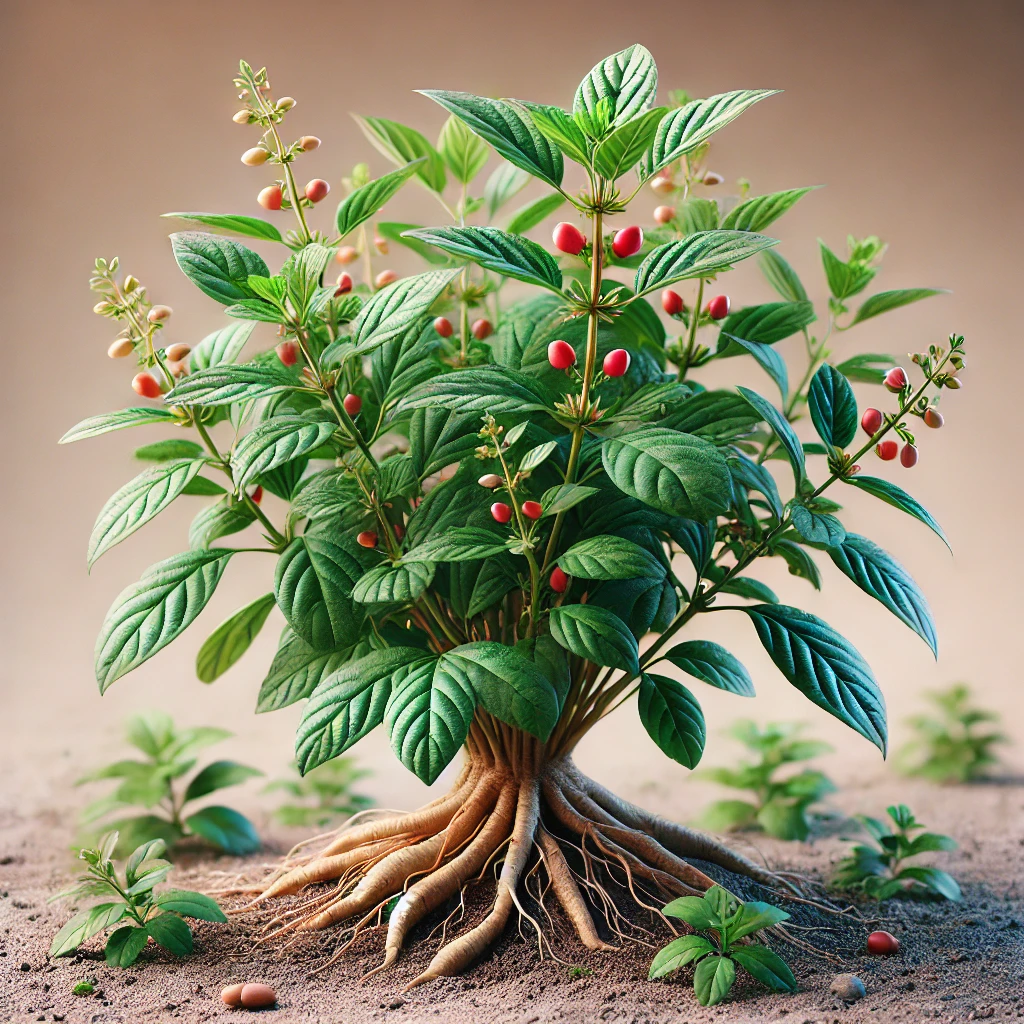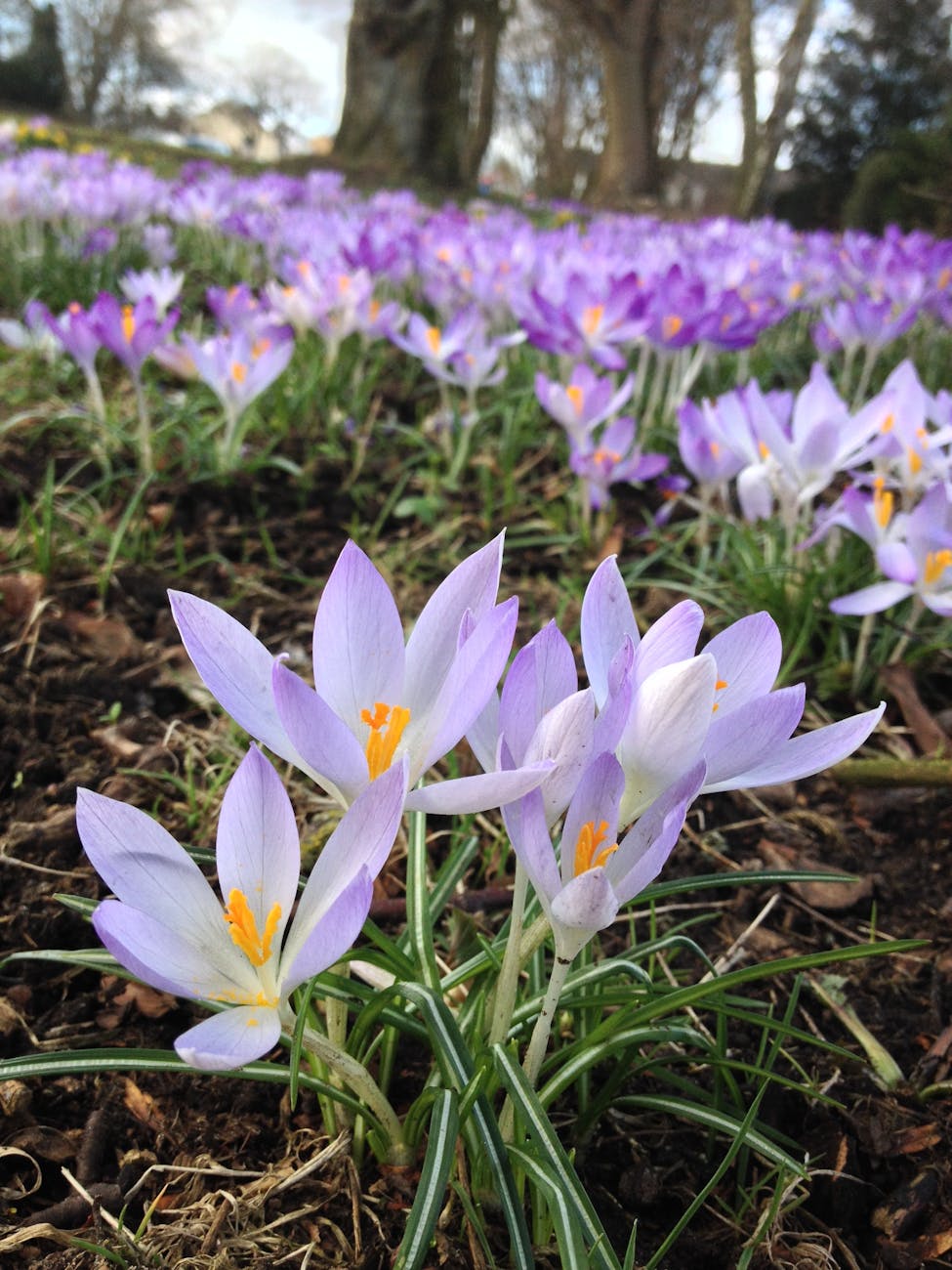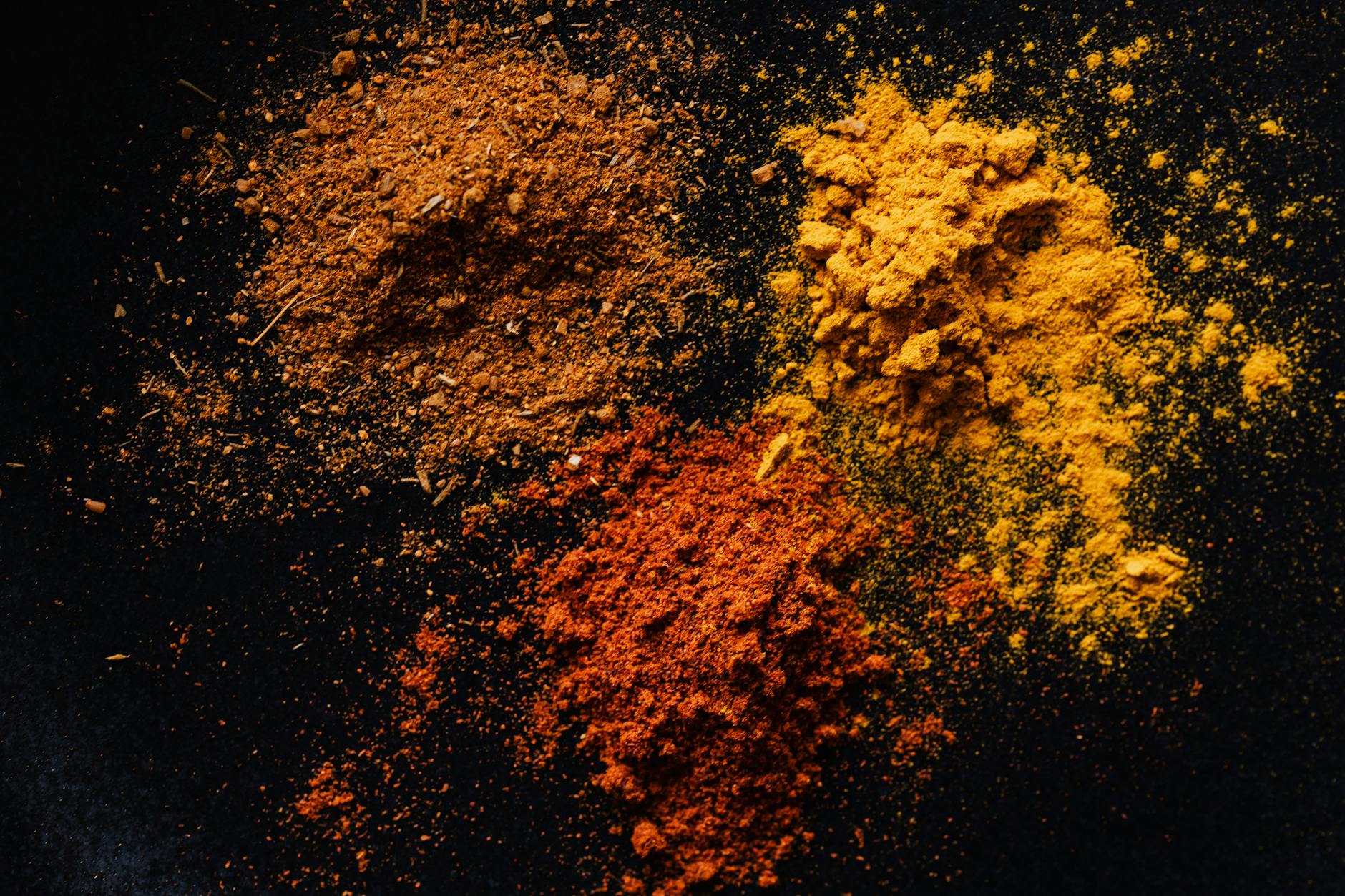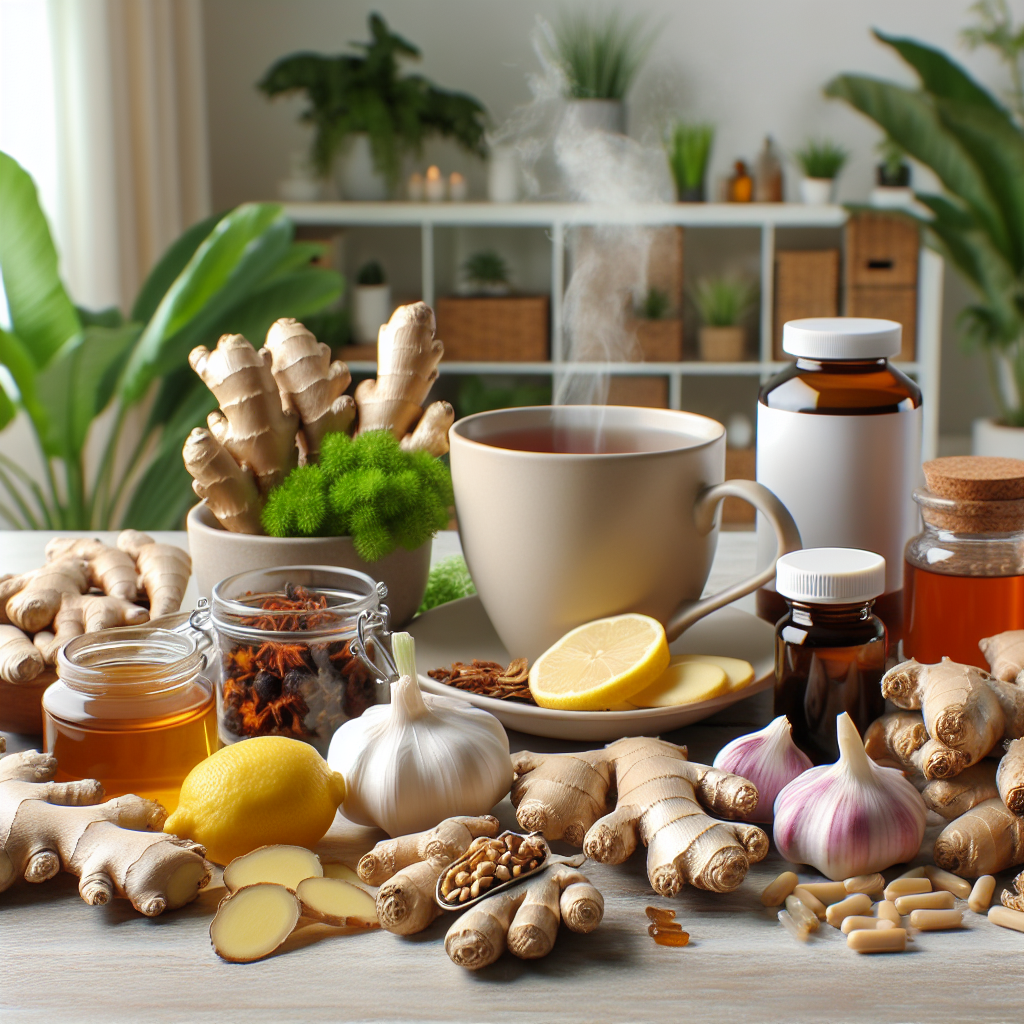Herbs are becoming increasingly popular for improving mental health. People are looking for natural ways to support their well-being, and many are turning to traditional herbal remedies alongside conventional treatments for issues like anxiety, depression, and stress.
For centuries, different cultures have used herbs for their potential mental health benefits. Recent research is starting to confirm these traditional uses, showing that certain herbs can actually help with mental wellness. Whether you want to reduce stress, boost your mood, or sharpen your thinking skills, exploring herbs could provide valuable insights and options.
In this article, we’ll take a closer look at some key herbs known for their positive effects on mental health. We’ll discuss how these herbs can be integrated into a holistic approach to well-being. By understanding what makes them beneficial, you can make informed choices about including them in your self-care routine.
Understanding Mental Health and Herbal Remedies
Mental health is an essential part of overall well-being, including emotional, psychological, and social aspects of life. It affects how you think, feel, and act, influencing daily decision-making, stress-handling abilities, relationships, and self-perception. Mental health isn’t just the absence of mental illness; it’s about thriving and realizing your full potential.
People often seek support for mental health issues such as:
- Anxiety: Excessive worry or fear that interferes with daily activities.
- Depression: Persistent sadness and loss of interest in activities once enjoyed.
- Stress: The body’s reaction to any change that requires an adjustment or response.
The rise in mental health awareness has led many to explore alternative solutions like herbal medicine. Herbs have been used for centuries across various cultures to alleviate symptoms related to these conditions. They offer a natural way to support mental health as part of a holistic approach.
Herbal Medicine plays a role in what is known as complementary therapies. These are treatments used alongside conventional medical practices to enhance overall well-being. While not intended as replacements for professional medical advice or treatments, herbs can complement existing mental health strategies.
By integrating herbs into mental health management under professional guidance, individuals may find additional support in managing their symptoms. This approach emphasizes the importance of a personalized plan that considers individual needs and existing medical treatments.
The potential benefits of herbs for mental health continue to be explored through ongoing research, offering promising avenues for those seeking natural alternatives or complements to traditional therapies.
1. St. John’s Wort: Nature’s Antidepressant

St. John’s Wort is a widely recognized herb for its potential in managing symptoms of depression. Known for its vibrant yellow flowers, this plant has been used for centuries in herbal medicine practices. Its popularity as a natural remedy stems from its ability to influence mood regulation.
How It Works
Serotonin Reuptake Inhibition
St. John’s Wort is thought to work by inhibiting the reuptake of serotonin, a neurotransmitter associated with mood regulation. By increasing serotonin levels in the brain, it can potentially improve mood and alleviate depressive symptoms.
Potential Side Effects and Interactions
While St. John’s Wort offers promising benefits, it also presents potential risks:
- Possible Side Effects: Users may experience side effects such as dry mouth, dizziness, gastrointestinal symptoms, or increased sensitivity to sunlight.
It’s crucial to consult healthcare providers before integrating St. John’s Wort into your mental health regimen to ensure safe and effective use.

2. Ashwagandha: The Herb for Stress Relief
Ashwagandha is an herb that has gained recognition for its ability to reduce stress. It has been used in traditional Ayurvedic medicine and is known for helping the body adapt to stress, which in turn supports mental health.
How Ashwagandha Works
Research has shown that Ashwagandha can effectively lower anxiety levels. Studies suggest that regularly consuming this herb can promote a feeling of calmness and relieve symptoms associated with chronic stress. This effect is believed to be due to Ashwagandha’s potential to influence neurotransmitter activity in the brain, leading to improved mental well-being.
One of the ways Ashwagandha may achieve its effects is by regulating cortisol levels—a hormone closely tied to stress responses. Elevated cortisol levels are often linked with increased anxiety and fatigue. By potentially reducing cortisol levels, Ashwagandha may offer a natural way to enhance overall well-being and build resilience against stress-related issues.
Benefits of Adding Ashwagandha
Here are some potential benefits of incorporating Ashwagandha into your routine:
- Reduces anxiety levels
- Promotes a sense of calm
- Alleviates symptoms associated with chronic stress
- Regulates cortisol levels
- Enhances overall well-being
Incorporating Ashwagandha into your daily life could provide additional support alongside other mental health practices. Its ability to help the body adapt to stress makes it a flexible addition that complements both lifestyle changes and traditional therapies aimed at effectively managing stress and anxiety.

3. Lavender: The Calming Hero of Aromatherapy
Lavender is well-known for its calming scent and is a key ingredient in aromatherapy, especially for relaxation. The essential oil extracted from lavender flowers is commonly used to create a peaceful and serene environment. This makes it a popular choice for diffusers, massage oils, and bath products designed to relieve stress.
Lavender’s Potential in Reducing Anxiety
Research supports lavender’s potential in reducing anxiety symptoms. Studies have shown that inhaling lavender oil may lower anxiety levels, making it a valuable tool in managing stress-related conditions. Its calming effects are believed to be due to its interaction with neurotransmitters in the brain, promoting relaxation and reducing restlessness.
Enhancing Sleep Quality with Lavender
Lavender is also known for its ability to improve sleep quality. People who struggle with insomnia or restless nights may find relief by incorporating lavender into their bedtime routine. Evidence suggests that lavender not only increases the length of sleep but also enhances its overall quality by promoting deeper, more restorative rest.
Whether used as an essential oil or included in various therapeutic products, lavender continues to be a beloved resource for promoting mental well-being through its calming effects and contributions to better sleep quality.

4. Ginkgo Biloba: Enhancing Cognitive Function and Mental Clarity
Ginkgo Biloba, one of the oldest living tree species, holds a significant place in traditional medicine, particularly within Chinese practices. Revered for its health-enhancing properties, it has been utilized for centuries to address various ailments.
Historical Significance
- Traditional Use: Often employed to improve blood circulation and cognitive function, Ginkgo Biloba has been a staple in herbal remedies across Asia and Europe.
Current Research Insights
Recent studies have begun to shed light on its potential benefits in modern medicine:
- Cognitive Function Enhancement: Ginkgo Biloba is gaining attention for its ability to enhance cognitive performance. It is believed to improve memory and attention by increasing blood flow to the brain.
- Adjunct Treatment for Schizophrenia: Some research suggests that Ginkgo Biloba may serve as an adjunct treatment in managing schizophrenia. It appears to help alleviate certain negative symptoms when used alongside conventional medication.
While promising, these findings underline the need for further research to fully understand the scope of Ginkgo Biloba’s effects on mental health. As with any herbal supplement, consulting a healthcare provider is crucial before incorporating it into your routine.

5. Saffron: The Golden Spice with Mood-Boosting Properties
Saffron, often referred to as the “golden spice,” has gained attention for its potential role in depression treatment efficacy. Recent clinical trials highlight saffron extract as a promising natural alternative for managing mood disorders. This vibrant spice is traditionally known for its culinary uses, yet its potential antidepressant effects are now being explored with growing interest.
1. Antidepressant Effects
Emerging research suggests that saffron may exert antidepressant properties similar to conventional medications but with fewer side effects. Studies indicate that saffron can positively influence neurotransmitters like serotonin, which play a crucial role in mood regulation.
2. Clinical Trials
Some clinical trials have demonstrated saffron’s effectiveness in alleviating symptoms of depression. These studies reveal that participants who consumed saffron extract experienced significant improvements in mood compared to those given a placebo.
3. Mood Disorders
Beyond depression, saffron shows promise in addressing other mood disorders. Its impact on emotional well-being might make it a valuable component of holistic mental health strategies.
While these findings are promising, consulting healthcare providers before incorporating saffron into your mental health routine is essential, ensuring safe and effective use alongside traditional treatments.

6. Turmeric (Curcumin): The Anti-Inflammatory Herb for Emotional Balance
Turmeric, known for its bright yellow color and use in cooking, has a long history in traditional medicine. It’s often praised for its anti-inflammatory properties and is now being recognized for its potential benefits in mental health.
How Turmeric Works
The key component of turmeric is curcumin, which is responsible for its healing effects. Research has shown that curcumin may help improve mood and manage anxiety by influencing neurotransmitter levels like serotonin and dopamine—important chemicals that regulate our emotions.
Additionally, studies suggest that curcumin could have positive effects on brain health by impacting a protein called brain-derived neurotrophic factor (BDNF). This protein plays a role in learning, memory, and overall cognitive function, making it potentially beneficial for individuals dealing with depression. By reducing inflammation and oxidative stress in the body, curcumin may also support mental clarity and emotional resilience.
Using Turmeric for Emotional Balance
Adding turmeric to your meals can be a natural way to promote emotional well-being. Here are some simple ways to incorporate this spice into your diet:
- Golden Milk: Make a soothing drink by combining turmeric with milk (dairy or plant-based), honey, and spices like cinnamon or ginger.
- Curries and Stir-Fries: Use turmeric as a key ingredient in curries or stir-fried dishes for an extra boost of flavor and nutrition.
- Smoothies: Blend turmeric into your favorite smoothie recipe along with fruits, greens, and other nutritious ingredients.
- Soups and Stews: Add turmeric to soups or stews while cooking to enhance both taste and health benefits.
Enhancing Absorption of Curcumin
It’s worth noting that curcumin is not easily absorbed by the body on its own. However, you can increase its absorption by pairing it with certain foods:
- Black Pepper: Adding a pinch of black pepper to your dishes containing turmeric can significantly enhance curcumin absorption due to a compound called piperine found in black pepper.
- Healthy Fats: Consuming turmeric with healthy fats such as avocado oil or coconut oil can also improve its bioavailability.
Consulting with Healthcare Professionals
As always, it’s important to consult with healthcare professionals before making any significant changes to your diet or incorporating new supplements into your routine—especially if you have existing medical conditions or are taking medications.
By working together with qualified experts, you can ensure safe and effective integration of turmeric into your mental health strategies alongside other lifestyle modifications.

7. Chamomile: Nature’s Gentle Relaxant
Chamomile has been used for centuries as a trusted relaxation herb. Its gentle nature makes it a popular choice for those seeking to alleviate stress and promote a sense of calm. Many people enjoy chamomile tea as a soothing beverage that helps ease tension and support restful sleep.
Research highlights chamomile’s potential in addressing mild depressive symptoms. Several studies suggest that chamomile may be effective in alleviating symptoms of mild depression, providing a natural alternative or complement to traditional treatments. The active compounds in chamomile, such as apigenin, are believed to bind to receptors in the brain, promoting relaxation and reducing anxiety.
Chamomile’s long-standing reputation in herbal medicine underscores its role as a gentle yet effective remedy for enhancing mental well-being. While more research is needed to fully understand its benefits, chamomile remains a favored choice for those looking to incorporate natural solutions into their mental health care routine.
Safety Considerations When Using Herbs for Mental Health Support
When considering herbs for mental health benefits, it’s crucial to prioritize safety. Engaging with herbal remedies without professional guidance can lead to unintended consequences.
Consult Healthcare Providers:
- Professional Guidance: Always consult with a healthcare provider before adding herbs to your mental health regimen. A professional evaluation ensures that the chosen herbs complement your current treatments and do not interfere with any medications you are taking.
- Medication Interactions: Certain herbs, such as St. John’s Wort, have known interactions with prescription medications. Professional advice helps in identifying potential interactions and adjusting treatment plans accordingly.
Regulation and Quality Control:
- Regulation Challenges: Herbal products often face varying degrees of regulation. Unlike pharmaceuticals, herbal supplements are not always subject to rigorous testing before hitting the market. This lack of regulation can lead to inconsistencies in product quality and efficacy.
- Quality Control: Selecting high-quality herbal products is essential. Look for products that have been tested by third-party organizations to ensure they meet certain purity and potency standards.
Herbal Safety Concerns:
- Adverse Effects: Just because a product is natural doesn’t mean it’s safe for everyone. Some individuals may experience allergic reactions or side effects when using certain herbs.
- Dosage Awareness: Proper dosing is critical. Overconsumption of some herbs can lead to toxicity or exacerbate existing health issues.
Taking these precautions enhances the safe use of herbs within a holistic approach to mental health care, ensuring that their benefits are maximized while minimizing risks.
A Holistic Approach to Mental Health Care
Incorporating a holistic approach to mental health care can significantly enhance your well-being. While herbs for mental health benefits are gaining recognition, they work best when integrated with other lifestyle practices. Here are some ways to combine herbs with complementary methods:
1. Therapy
Engaging in therapy can provide a structured environment for addressing mental health challenges. Herbs may help manage symptoms, allowing you to focus more effectively during sessions.
2. Mindfulness and Meditation
Practices like mindfulness and meditation cultivate awareness and calmness, which can be amplified by calming herbs such as lavender or chamomile.
3. Exercise
Regular physical activity boosts endorphins, improving mood and reducing stress. Combining this with herbal supplements like Ashwagandha might enhance stress relief.
4. Balanced Diet
Nutrition plays a crucial role in mental health. Consider integrating herbs into meals or teas to support emotional balance and cognitive function.
“True well-being is achieved through a synergy of various practices that nurture the mind, body, and spirit.”
Adopting a holistic strategy not only harnesses the potential of natural remedies but also fosters a comprehensive path toward sustainable mental health care.












The article presents a well-rounded perspective on how herbs can aid in mental health. It’s interesting to see the growing research backing traditional practices. I wonder how these herbs compare with conventional treatments over the long term.
I appreciate the detailed information on each herb’s benefits and potential side effects. It’s important to consult healthcare professionals before trying these remedies. The blend of traditional and modern approaches is quite enlightening.
This article provides valuable insights into herbal remedies for mental health support. I find it compelling how different cultures have utilized these herbs for centuries. However, I think more research is needed to establish their efficacy.
I found the holistic approach to mental health care presented here very insightful. It’s great that the article emphasizes integrating herbs with lifestyle changes like mindfulness and exercise for better overall well-being.
The discussion on various herbs and their roles in supporting mental health is quite informative. It highlights the importance of a personalized approach to treatment, which is crucial for anyone considering these alternatives.